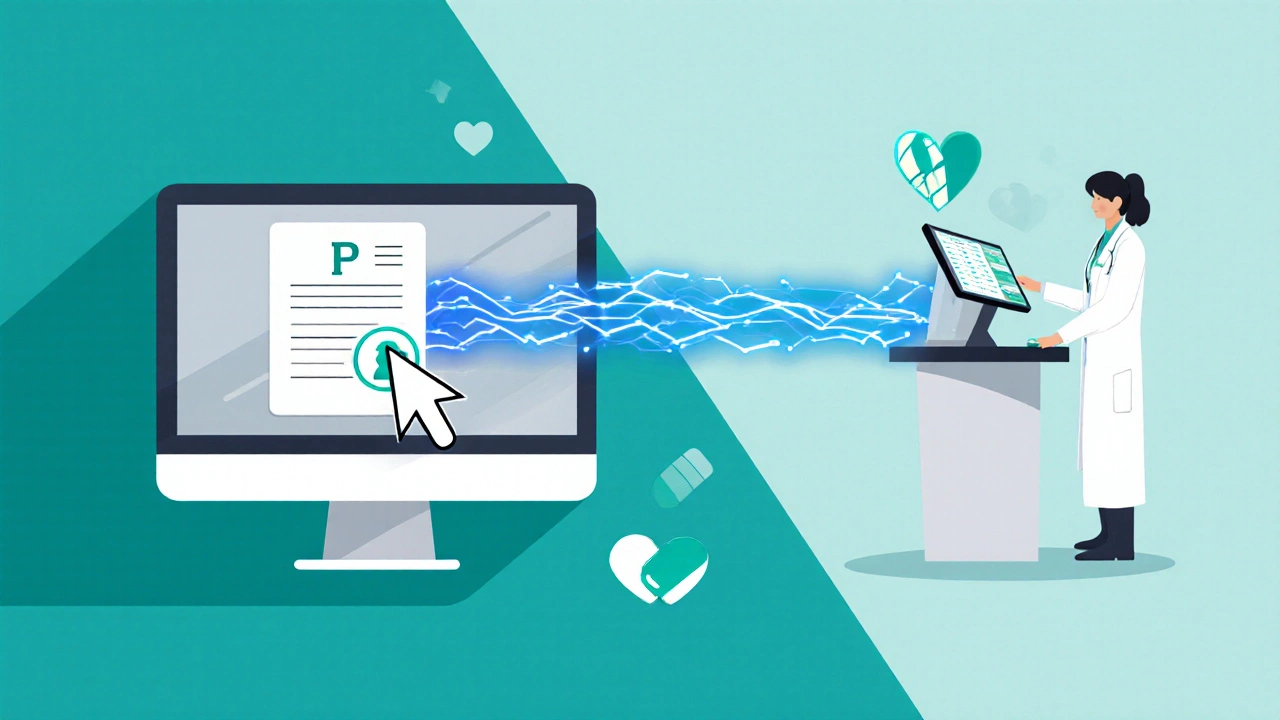When you walk into a General Practitioner is a medical doctor who provides first‑line, community‑based care, often acting as the first point of contact for most health concerns. one of the first questions you’ll hear is, “What can a GP prescribe?” The answer isn’t a simple yes‑or‑no; it depends on the type of medication, the condition being treated, and the regulatory framework in the UK and Ireland. This guide walks you through every facet of a GP prescription - from common drug classes to electronic repeat services - so you know exactly what to expect the next time you need a script.
Scope of GP Prescribing
GPs are licensed to prescribe any medication listed on the British National Formulary (BNF) or the Irish British National Formulary for Ireland (BNF‑I). These formularies cover thousands of medicines, from simple analgesics to complex biologics, but there are three practical limits:
- Clinical competence: A GP can only prescribe drugs they feel confident managing, based on training and experience.
- Regulatory rules: Certain drugs are classified as controlled, specialist‑only, or require a specialist’s endorsement.
- Cost‑effectiveness: In the NHS or HSE, the prescribing system favours medicines that provide good value for the public purse.
Understanding these boundaries helps you frame realistic expectations before your appointment.
Common Medication Categories GPs Can Prescribe
Below are the most frequently prescribed drug groups, each with a short description of what they treat:
- Analgesics & anti‑inflammatories: Paracetamol, ibuprofen, and stronger NSAIDs for musculoskeletal pain.
- Antibiotics: Amoxicillin, doxycycline, and macrolides for bacterial infections (used sparingly to combat resistance).
- Antihypertensives: ACE inhibitors, beta‑blockers, and calcium channel blockers to manage high blood pressure.
- Statins: Atorvastatin, simvastatin - the go‑to drugs for cholesterol control.
- Diabetes meds: Metformin, sulfonylureas, and GLP‑1 agonists (the latter often need specialist co‑sign).
- Inhalers: Short‑acting bronchodilators, inhaled corticosteroids for asthma and COPD.
- Antidepressants & anxiolytics: SSRIs, SNRIs, and low‑dose benzodiazepines for mental health.
- Hormone replacement therapy (HRT): Estrogen, progesterone combos for menopause symptoms.
- Vaccines: Flu, COVID‑19, shingles - administered directly or prescribed for community pharmacies.
All of these fall comfortably within a GP’s prescribing rights, provided the indication matches the clinical guidelines.
How to Obtain a Prescription from Your GP
The process has become largely digital, but the fundamentals remain the same:
- Book an appointment: Use your practice’s online portal, phone line, or walk‑in service. Mention the medication you think you need so the GP can prepare.
- Consultation: The GP will assess symptoms, request any necessary tests, and decide if medication is appropriate.
- Prescription generation: Most UK and Irish practices use Electronic Prescription Service is a nationwide system that sends prescriptions directly to your chosen pharmacy, removing the need for paper scripts.
- Pick‑up: Your pharmacy receives the script instantly. You can collect the medication within minutes, or have it delivered if the service offers.
If you prefer a paper copy, ask the GP to print one. Some patients still rely on it for travel abroad or for pharmacies that haven’t fully adopted EPS.

Controlled and Specialist‑Only Drugs
Not every drug is freely available from a GP. Two main categories have tighter controls:
- Controlled Drug is a medication regulated under the Misuse of Drugs Act (UK) or Misuse of Drugs Regulations (Ireland), ranging from opioids to certain stimulants. GPs can prescribe lower‑strength options (e.g., tramadol), but stronger opioids (morphine, oxycodone) usually require a specialist’s input and a formal addiction‑risk assessment.
- Specialist‑only medicines: Biologics for rheumatoid arthritis, certain disease‑modifying antirheumatic drugs (DMARDs), and newer antiviral agents often need a rheumatologist, neurologist, or infectious‑disease specialist to co‑sign the script.
If your GP determines you need a controlled or specialist‑only drug, they’ll refer you to the appropriate secondary‑care service. Once the specialist signs off, the medication can be prescribed through the GP’s practice, keeping the process seamless for you.
Repeat Prescriptions and the Electronic Prescription Service
For chronic conditions, you’ll likely need a Repeat Prescription is a prescription issued for a medication the patient has previously taken, allowing regular refills without a new consultation each time. Here’s how the system works today:
- During your first visit, the GP adds the medication to your repeat list in the practice software.
- The prescription is automatically sent to your chosen pharmacy via EPS each month (or at the interval you set).
- You receive a text or email reminder when the next batch is ready.
Most practices allow you to manage repeats online - you can pause, cancel, or request a dose change through a secure portal. If you travel abroad, a paper repeat can be issued for a limited period.

Tips for a Smooth Prescribing Experience
- Know your medication history: Bring a list of current drugs, dosages, and any allergies. This helps the GP avoid interactions.
- Ask about generic options: Generics are cheaper and just as effective. In Ireland, many GPs will prescribe the brand‑name only if a specific formulation is needed.
- Check eligibility for free prescriptions: In England, patients over 60, under 16, or with certain medical conditions qualify for free NHS prescriptions. In Scotland, Wales, and Northern Ireland, all prescriptions are free. In the Republic of Ireland, the Medical Card scheme covers most costs for eligible patients.
- Clarify the pick‑up method: If you prefer a local pharmacy versus a large chain, let the practice know when you request the script.
- Plan ahead for repeat meds: Refill before you run out; a short gap can delay treatment and increase costs.
- Use the practice’s online portal: Many services let you request repeat prescriptions, view past meds, and upload test results, cutting down on phone calls.
When a GP Can’t Prescribe - Next Steps
There are occasions when a GP must say “no.” Common scenarios include:
- Request for a medication that’s not indicated for your condition (e.g., antibiotics for a viral infection).
- Need for a controlled or specialist‑only drug without specialist input.
- Potential drug‑interaction risk that outweighs benefit.
In each case, the GP will either suggest an alternative (e.g., physiotherapy instead of muscle relaxants) or refer you to a specialist. Following the referral promptly often speeds up the overall treatment timeline.
Bottom Line
GPs can prescribe a vast majority of medicines used in primary care, ranging from painkillers to chronic‑disease drugs. The key limits are regulatory (controlled drugs, specialist‑only meds), clinical competence, and cost‑effectiveness within the NHS or HSE frameworks. By understanding the process, knowing your medication history, and using electronic services, you can make the most of your GP visit and keep your prescriptions hassle‑free.
Can a GP prescribe antibiotics for a common cold?
No. A cold is caused by viruses, and antibiotics only work on bacteria. Prescribing them can increase resistance and cause side effects. GPs usually advise rest, fluids, and over‑the‑counter symptom relief.
What is the difference between a private prescription and an NHS prescription?
A private prescription is paid for out‑of‑pocket or through private insurance, giving you access to a broader range of brands or faster service. An NHS prescription is subsidised, with most patients paying a flat fee (or none, if eligible). Both are written by the same GP but follow different billing pathways.
How long does an electronic prescription take to reach the pharmacy?
Usually a few seconds. Once the GP clicks ‘send’, the prescription appears instantly on the pharmacy’s system. You’ll get a text or email confirming it’s ready for collection.
Are repeat prescriptions free in the Republic of Ireland?
Only if you hold a Medical Card or a GP Visit Card. Otherwise, each repeat script incurs the standard prescription charge, which is currently €7.50 per item (subject to change).
Can a GP prescribe a strong opioid like morphine?
Generally no, unless it’s part of a palliative‑care pathway and the GP has completed specific training. Strong opioids are usually initiated by a pain specialist or palliative‑care team.




